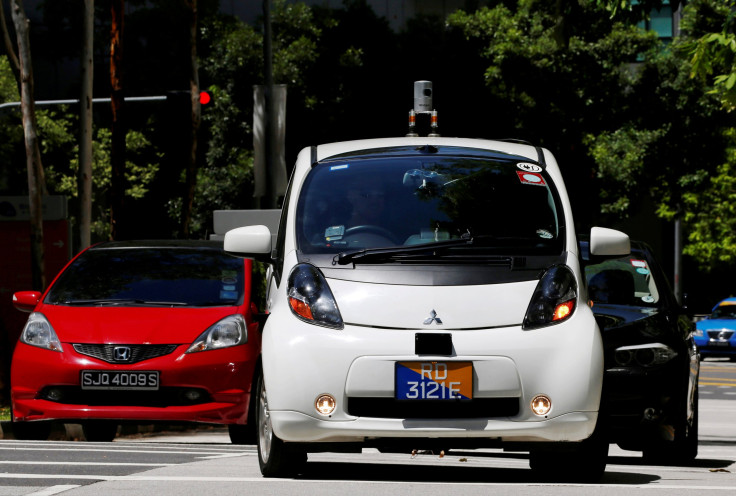Self-Driving Car On The Autobahn Expected As Germany Legalizes Tests, Report Says

Germany, home to one of the world’s largest automotive industries, passed a law Friday, which would allow autonomous cars to be tested on the country’s public roads, Reuters reported Friday. The move could provide the country an advantage over the U.S., as it is still quibbling over self-driving legislation here.
The German Transport Minister Alexander Dobrindt called self-driving, “the greatest mobility revolution since the invention of the car.”
According to the report, the new law would allow human drivers assigned to self-driven vehicles to remove their hands from the steering, giving vehicle makers a chance to get an accurate assessment of the functioning of self-driven vehicles. However, the law still requires human drivers to stay in the driving seat, in case they need to take control at any time during the self-driving trials.
Read: Google's Waymo Launches Self-Driving Taxi Program In Phoenix Area
It also requires the vehicles to have a black box, just like airplanes, to record a log of the journey and record times when human drivers had to take over control from artificial intelligence (AI). The German might have got a temporary answer to self-driving's most prominent question — who is to be blamed in case of an accident. The legislation assigns a two-way liability — if a human is in charge at the time of an accident, then the human is to blame for it and if AI is in charge, then the manufacturer will have to take on the liability. The legislation might set a precedent for self-driving legislation globally.
The report further says that the law will be revised in a couple of years’ time in accordance with technological advancements, and also with a focus on data collection practices — as the use of the ride data collected during a self-driving car ride needs to be properly assessed.
Self-driven cars are expected to hit the roads properly only by 2020, but self-driving legislation will be critical in determining the future of the technology and its working everyday. While the technology is evolving at a rapid pace, the legislation is yet to keep pace. While 33 U.S. states have enacted self-driving legislation till date, only California has actually come out with proposed regulations for self-driving, with strict requirements with regard to human control of cars, the weight of the cars and the extensive need for reporting instances when humans had to take over control. Companies such as Apple and Tesla have opposed the proposed regulations on account that they would act as a major hindrance to testing fully autonomous cars.
Read: Self-Driving Cars Will Improve Traffic Flow, Perform Better Than Human Drivers, Study Says
While lawmakers might have their doubts about self-driving, a recent study found that self-driven cars are actually safer than human driven ones, since they can maintain a better consistency in the pattern of driving and aren’t as erratic with it. It further said that even if only a few self-driven cars are introduced on the roads, they might help in creating a smoother traffic flow.
© Copyright IBTimes 2025. All rights reserved.



















